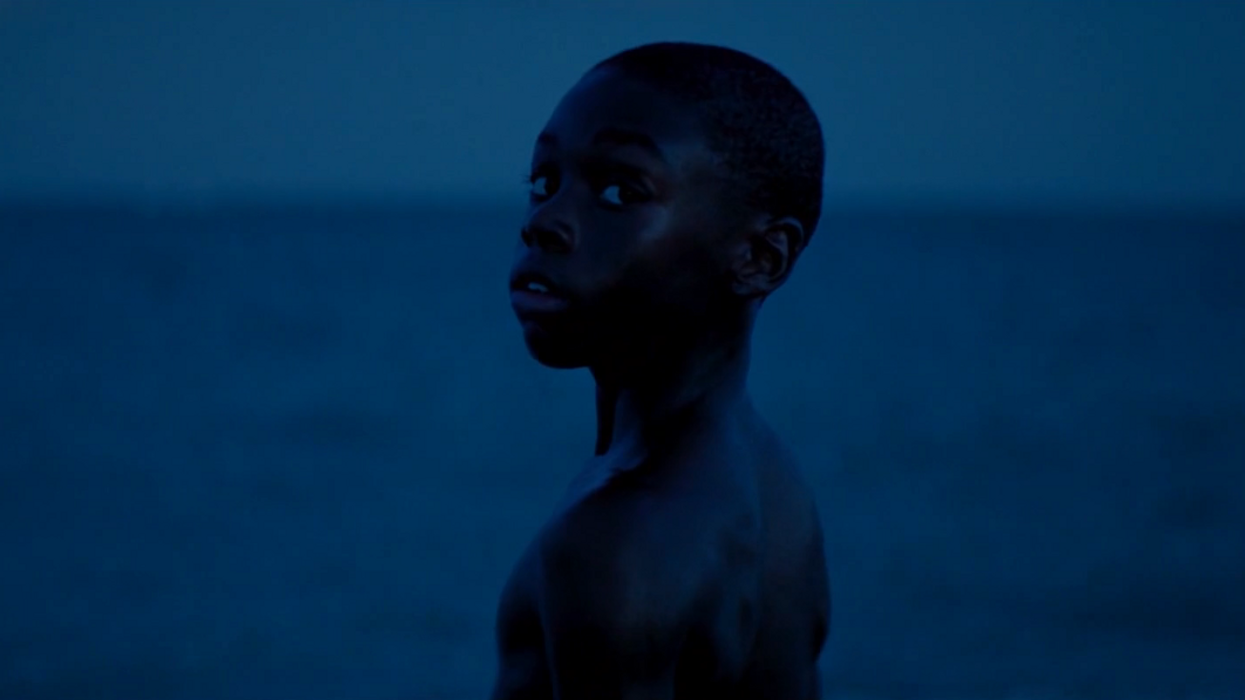Watch: 14 Visual Motifs That Occurred Throughout 'Moonlight'
These video essays explore the many visual queues in "Moonlight" that helped reveal the emotional story of the film's main character, Chiron.

In a historical Oscar upset (following a painfully awkward misreading of the winner), director Barry Jenkins' Moonlight won Best Picture. Even though receiving the most prestigious award in the land doesn't automatically make a film worth studying, and though Moonlight was already an important film before its nomination, the wave is certainly easy to catch and these video essays will help you ride for a while longer.
Video essayists Jacob T. Swinney and Zackery Ramos-Taylor have both created pieces that explore the visual motifs in Moonlight, like tracking shots from behind, Chiron eating at diners, and dunking his head in a sink full of ice. Swinney focuses on the reoccurring imagery in a side-by-side comparison, and Ramos-Taylor focuses the "intimate look" created by DP James Laxton, but both reveal how powerful and important these motifs are when it comes to telling Chiron's story, as well as revealing his inner turmoil.
Moonlight intentionally veered away from the realist look in order to capture Chiron's dreamlike experience of living life as a gay black man in Miami. This was helpful in setting up Chiron's introspection at different stages of his life, but as Lee's video points out, the motifs made the bridges between these stages solid and unquestionable.
For instance, DP James Laxton follows Chiron as he walks away from the camera at every stage of his life, which one analysis of the film claims is a visual metaphor for Chiron's fruitless search of his true self. So, it would stand to reason that his search has been lifelong. Another example, one that Ramos-Taylor's essay explores, is the way Jenkins and Laxton captured gazes in the film. Jenkins has said in interviews that he wanted to find actors with similar looking eyes to play Chiron at the three different stages in his life, because, most likely, so much attention would be put on the numerous shots of characters gazing right into the camera.
This motif is an interesting one, because these shots can be seen as the moment between the asking of a question and the answering of one. Does Chiron trust his crack addicted mother? Does he have feelings for his friend Kevin? Is Kevin really going to beat the shit out of Chiron?
Though the intense intimacy of this kind of POV shot helps motivate the viewer to try to answer these questions for the characters in the film, that same intense intimacy challenges the viewer to answer these questions for themselves. "Do I trust my mother?" "Do I have feelings for my friend?" "Is Kevin really about to beat the shit out of me?"
Moonlight is a complex, lyrical work of cinema, one that cinephiles, film analysts, and film historians will enjoy picking apart for years to come.











